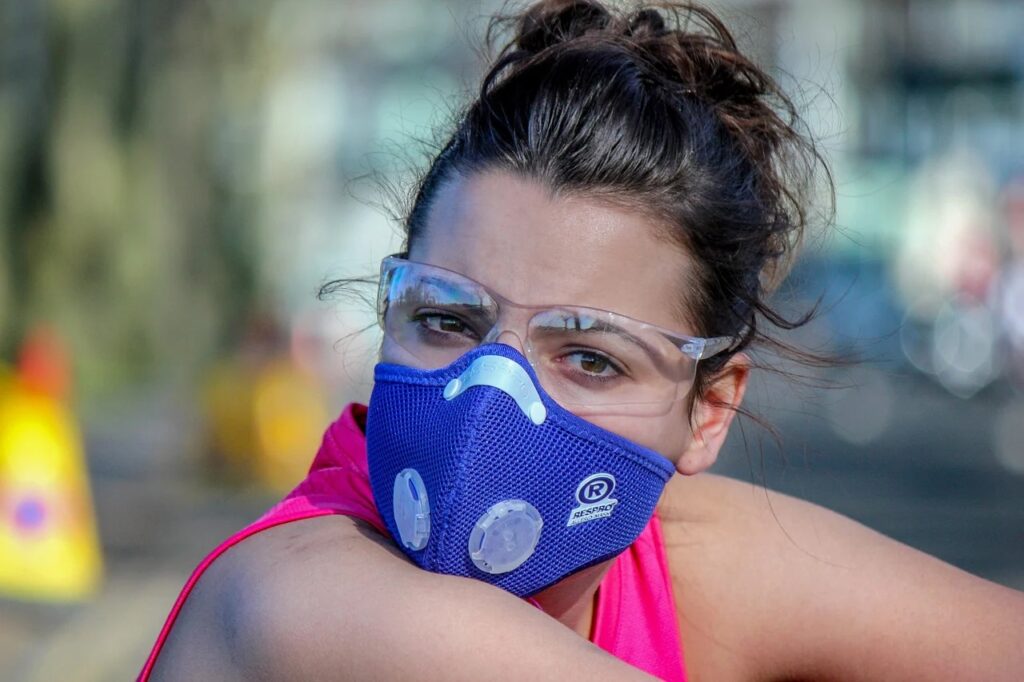What is Asthma?
Asthma is a condition in which your airways narrow and swell and produce extra mucus. This can make breathing difficult and trigger coughing, wheezing and shortness of breath.
For some people, asthma is a minor nuisance. For others, it can be a major problem that interferes with daily activities and may lead to a life-threatening asthma attack.
Asthma can’t be cured, but its symptoms can be controlled. Because asthma often changes over time, it’s important that you work with your doctor to track your signs and symptoms and adjust treatment as needed.
Using Acupuncture to Treat Asthma Symptoms, Respiratory Issues & Allergies
 People living with asthma use a variety of methods to keep their condition under control. Common methods include taking daily medicine to lower inflammation in the airways, and using inhalers for quick relief when an asthma attack strikes, according to the National Heart, Lung, and Blood Institute.
People living with asthma use a variety of methods to keep their condition under control. Common methods include taking daily medicine to lower inflammation in the airways, and using inhalers for quick relief when an asthma attack strikes, according to the National Heart, Lung, and Blood Institute.
For some people, complementary treatment options can boost the effectiveness of conventional treatments and help keep symptoms under control. A complementary option could include acupuncture.
In Chinese medicine, asthma is called “xiao chuan”, which means wheezing and dyspnea, respectively. Chinese medicine classifies xiao and chuan as two separate illnesses with different treatments. Xiao (wheezing) is characterized by a whistling sound during breathing, increased respiration rate, dyspnea and inability to rest in a horizontal position. Chuan (shortness of breath) is characterized by dyspnea, constant opening of mouth to grasp air, raised shoulder, flared nostrils and inability to rest in a horizontal position. Patients with xiao (wheezing) generally will have chuan (shortness of breath), while patients with chuan (shortness of breath) may or may not have xiao (wheezing). In Western medicine, wheezing and shortness of breath are both considered as symptoms which may be present in many different types of pulmonary syndromes such as asthma, acute bronchitis, chronic bronchitis and emphysema.
What Science Says About Acupuncture Relieving Asthma Attacks
Researchers find acupuncture effective for relieving allergic asthma, a type of asthma triggered by allergens (e.g., dust mites, mold, pollen, foods). Symptoms include wheezing, difficulty breathing, itchy eyes, sinusitis, rhinitis, a general feeling of malaise, and sneezing. In a randomized controlled trial of 1,445 patients, acupuncture provided lasting relief for six months.
The researchers note that after the three months of acupuncture treatments, patients had significant improvements in global quality of life scores and individual parameters such as symptoms, activities, emotions, physicality, and mental function. An important finding, the durability of acupuncture was confirmed by a six month follow-up. Despite not having any acupuncture for three months following the completion of the study’s treatment regimen, the six month data point measured improvements “comparable to the 3 months’ improvements.”
If traditional treatment options don’t seem to be working or are giving you unpleasant side effects, acupuncture may be your solution.
Contact Us For More Information
For more information about how acupuncture, massage therapy and other alternative healing treatments can help you, please contact the Urban Acupuncture Center Board Certified Licensed Acupuncturist’s team at Indianola Ave, Clintonville (614) 725-2488 | Main St, Westerville (614) 426-4406 or click here. Taking new patients in and around greater Columbus, Ohio.
